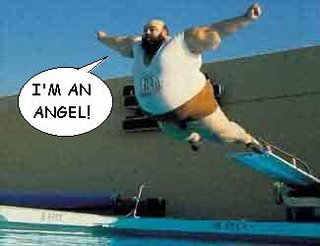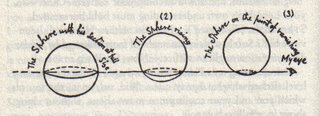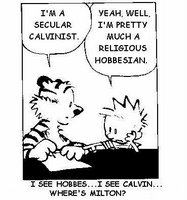Describe What Four Dimensions Looks Like…I Dare You…
In Response to Megan’s Post: “Lineland.”
For those of you who have not read the novel "Flatland," A. Square, has a dream that he goes to Lineland – a world that is only one-dimensional, composed of only a straight line. In Lineland, the inhabitants cannot move around (because they cannot walk around their neighbours) and their field of vision consists only of a single point (as if you were to look at a line from its end).
The argument is that because A. Square has an unconscious vision of Lineland, that the perception of other realities is possible, without the use of our senses. This is true, when we are speaking of the perception of realities that are less complex than our own. It is not too difficult for us to imagine a two-dimensional world – we can draw diagrams, and explain which dimension is missing from our own world. Likewise, A. Square can easily paint an accurate picture of Flatland or Lineland for us. There is nothing new in a one dimensional, or two-dimensional world that we cannot experience to some degree through our three-dimensional senses – we all know what a point and a line are.
It is when it comes to imagining dimensions beyond our own (like God), that it becomes impossible to perceive. Just as A. Square cannot imagine anything more than seeing only straight lines, we three-dimensional beings cannot imagine seeing a fourth dimension. Some people might call time the fourth dimension, or some people might call thought the fourth dimension, but I am talking about a physical fourth dimension here. It cannot be measured, it cannot be drawn, and it cannot be imagined – our minds are limited to our own world. Just try and imagine what it would be like – you can’t.
Megan also argues that people who see angels or miracles are using their senses to prove the existence of God. For starters, if angels or miracles are anything like God then we cannot perceive them either. A miracle can just be a random event, and an angel might just be someone or something that looks like an angel – those of us that are foolishly blinded by this false sense “faith” interpret them as acts of God. If you could actually sense these things, then they would likely exist. I’m just saying that they can’t possibly be sensed in the first place.






